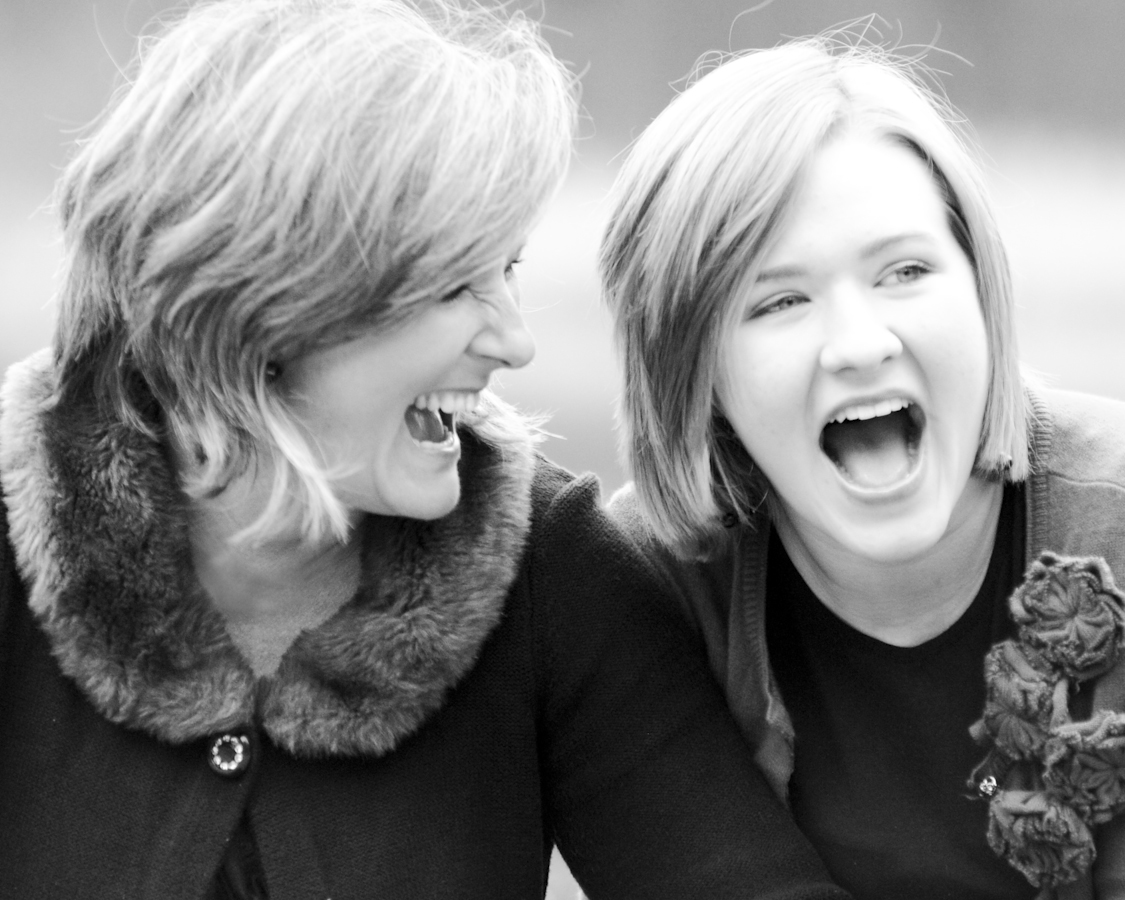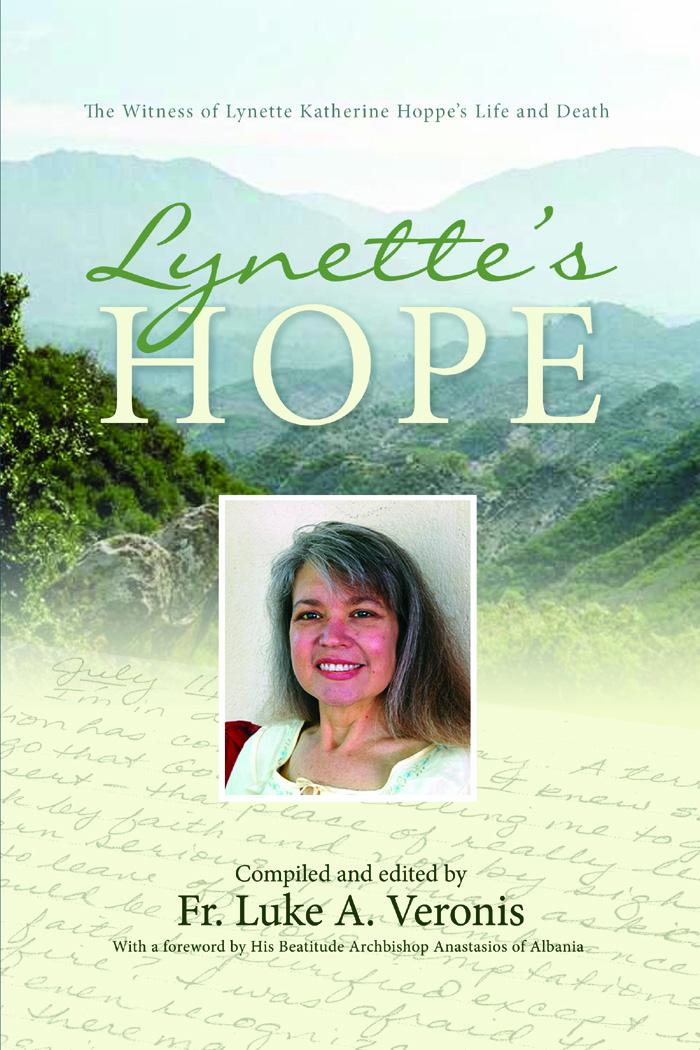Today is the Sunday of the Cross for Orthodox Christians, the Sunday of Lent in which we are supposed to consider the full gravity of what it meant when Jesus said, “If anyone would come after me, he must deny himself and take up his cross and follow me. For whoever wants to save his life will lose it, but whoever loses his life for me and for the gospel will save it.” At liturgy today, Father did not give a sermon, which I thought odd. After communion, though, he introduced a guest homilist: Nathan Hoppe, an Orthodox missionary to Albania. I instantly recognized his name, because Frederica Mathewes-Green had asked us five or six years ago to pray for Nathan’s wife Lynette, who was dying of cancer. Her suffering and death had been saintly, as I recalled from memory (her former pastor in Chicago, Father Pat Reardon, writes of attending her in Albania as she died in 2006).
Nathan stood before the congregation and said that “taking up the cross” does not mean bearing daily indignities and sufferings with a sweet and serene spirit. It means embracing one’s death, because the cross is an instrument of execution. Nathan did not mention his late wife in his homily, but everyone there knew what this man had lived through, and they knew where his words came from. Of course I was thinking about my sister Ruthie, and her struggle with cancer; I always am. Earlier that morning, as I approached the communion chalice, I prayed once again to Christ to show mercy on her and to heal her. I felt in my heart the words, “I am.” I have been trying to reconcile myself to the truth that whatever Ruthie is suffering now, and whatever she has to suffer, is allowed by God for his greater glory, and for her spiritual healing. But it’s hard. She’s now lost all her hair from the chemotherapy — but my mother said on the phone today that she and Daddy were surprised by how beautiful Ruthie’s face is; Ruthie has always had such thick, lustrous hair that they hadn’t noticed the beauty of the bones in her face.
Anyway, as we listened to Nathan speak, Julie whispered in my ear, “Rod, this is not a coincidence that he’s here today.”
I was able to speak with Nathan briefly after services, and I told him about Ruthie . He said to me, “You know, when Lynette was first diagnosed, we were all praying so hard for her healing. It seemed like the more we prayed, the sicker she got. It made no sense. Then it finally became clear that He was healing her — just not in the way we wanted, or expected.”
. He said to me, “You know, when Lynette was first diagnosed, we were all praying so hard for her healing. It seemed like the more we prayed, the sicker she got. It made no sense. Then it finally became clear that He was healing her — just not in the way we wanted, or expected.”
I bought in the church bookstore for my sister a copy of “Lynette’s Hope,” a book of her collected writing from her missionary days, most of it her journal entries from her cancer struggle. I’ve been reading it throughout the day, and it is a blessing and a revelation. Here are some passages that really resonated with me:
I began to think about Jesus’ healing ministry and how often he said to those who sought physical healing, “Your sins are forgiven.” The sick sought physical healing, but Jesus gave them the healing they really needed — spiritual healing. Their bodies would die eventually anyway, but their souls, which would live on, needed to be ehaled of spiritual infirmities. Jesus gave the sick what they asked for, but he also gave them what they truly needed.
I started to pray for spiritual healing, though I didn’t really know what I was looking for.

Later, Lynne writes:
I do not believe that preparing to be healed implies that if I make “enough spiritual progress” God will find me worthy of being healed. God acts according to what he deems best for me, and that may mean not healing me. Preparing for healing means that I pray for and seek healing of soul, so that, should God heal my body, I can rise from my bed of illness ready to live a transformed life, becoming light and salt and joy and hope and love in the world.
More:
[[E]ven if the thing given to us looks “bad,” it is given so that we might learn to detach ourselves from this world and cling to God. To be given a cross, then, is an honor, for it is God’s way of wooing us. We listen better when things are difficult because we suddenly become aware of our desperate need for God.
…I want to comment on all the prayers that are being offered up to God for my healing. I know it is tempting for people to think tha ttheir prayers are not being answered because I have not been healed of cancer. But the truth is that prayers are being answered in the most miraculous ways — perhapes not for healing of body, but certainly for healing of soul. Nathan and I can attest personally to the real transformation that continues to take place in our own lives and in our marraige. We’ve also seen people close to us undergo dramatic changes for the good. In my mind, healing of soul is the greater gift, for it has bearings on eternity, whereas healing of body is only temporary.
And who knows? It isn’t over yet. Perhaps healing of body is still to come. I rest confident in the purposes of God. If he still wishes to use me for good in this life, he will spare me. If he has accomplished his purposes, he will take me. This truth helps me cope with the thought of leaving my children, for it encompasses the idea that God will accomplish his purposes for my children as well. If he takes their mother from them while they are young, he has his reasons for doing so, and because he is good, his reasons are good. He will provide for them. When I succumb to anxiety about the future, I still shed tears over the thought of leaving my children, but my struggle is emotional. It is not spiritual, for I rest contentedly in the will of God.
Lynette’s journal is filled with examples of how she herself was healed of spiritual brokenness. You would think that a pious woman like her, a Christian who had given her life to serving the poor in the mission field, wouldn’t have much to be healed of. But her cancer showed her otherwise. At one point in her treatment, she encountered this short sermon on healing by Metropolitan Anthony, which moved her to reflect on how asking God for healing cannot mean only asking for healing of the body, but is actually an awful (as in, filled with awe) request: we are asking to be made whole, and dying to self is agonizing.
Eleven days before she died, Lynette Hoppe gave a talk at a girls camp in Albania. It was her last public statement. You can hear the talk here. During the question and answer period, Lynette became too tired to continue, so Nathan said to the group:
This is why it is very important during our lives to be spritiually prepared for our journey through life. If we remain unprepared spiritually, we won’t know how to face a crisis. Don’t think that crises are only for others. Don’t believe that we can live however we want, and only when we get older, we can begin to focus on spiritual things. Athletes don’t prepare on the day of their contest, but they begin much before the actual contest. In like manner we have to be preparing from now for our spiritual journeys.
Lynette was in her mid-40s when she was diagnosed with cancer. My sister Ruthie is 40. Who knows why both of these good women were so afflicted? Father Luke Veronis, a friend of the Hoppes and the compiler of her writing in “Lynette’s Hope,” quotes a bishop as having said, “LIfe is not a problem to be solved, but a mystery to be lived.” In that sense, we can’t make sense of this terrible thing that came upon Lynette, or that has come upon Ruthie and her family. We still pray for Ruthie’s full healing, of soul and body. God grant it, and soon! But all of us, even we who will wake up in the morning and go into the world in the fullness of health, will face death one day. Nathan’s words at his wife’s final appearance are a powerful warning — but also a source of hope. Lynette faced early, and painfully, what we all must — and met her death healed. This paradox is a mystery; we cannot reason our way through it, but only accept it and live it, and participate in it. This, I think, is why it makes Ruthie so happy to hear that people are responding to her suffering by changing their lives for the better, and healing themselves, and the world. This gives her joy. It really does.
This is the Way of the Cross, from death unto life.
Ruthie called this afternoon from the road. She, Mike and the girls had gone out driving, enjoying the early spring day in south Louisiana. Her voice is shaky, her breathing shallow and labored, but she said, with sunshine in her voice, “We had the most wonderful day.”
I know they did. I know they did.
